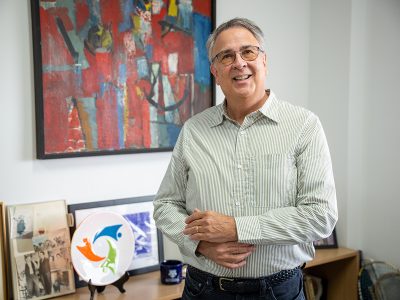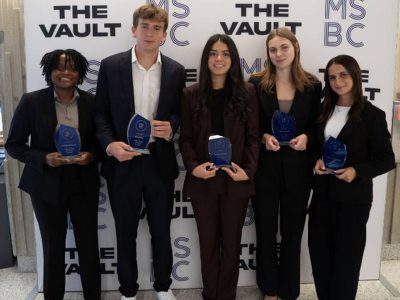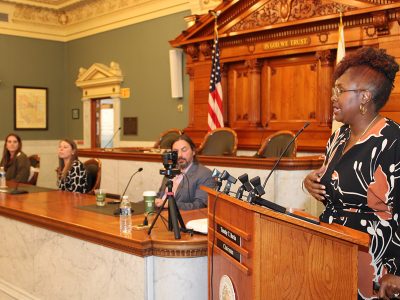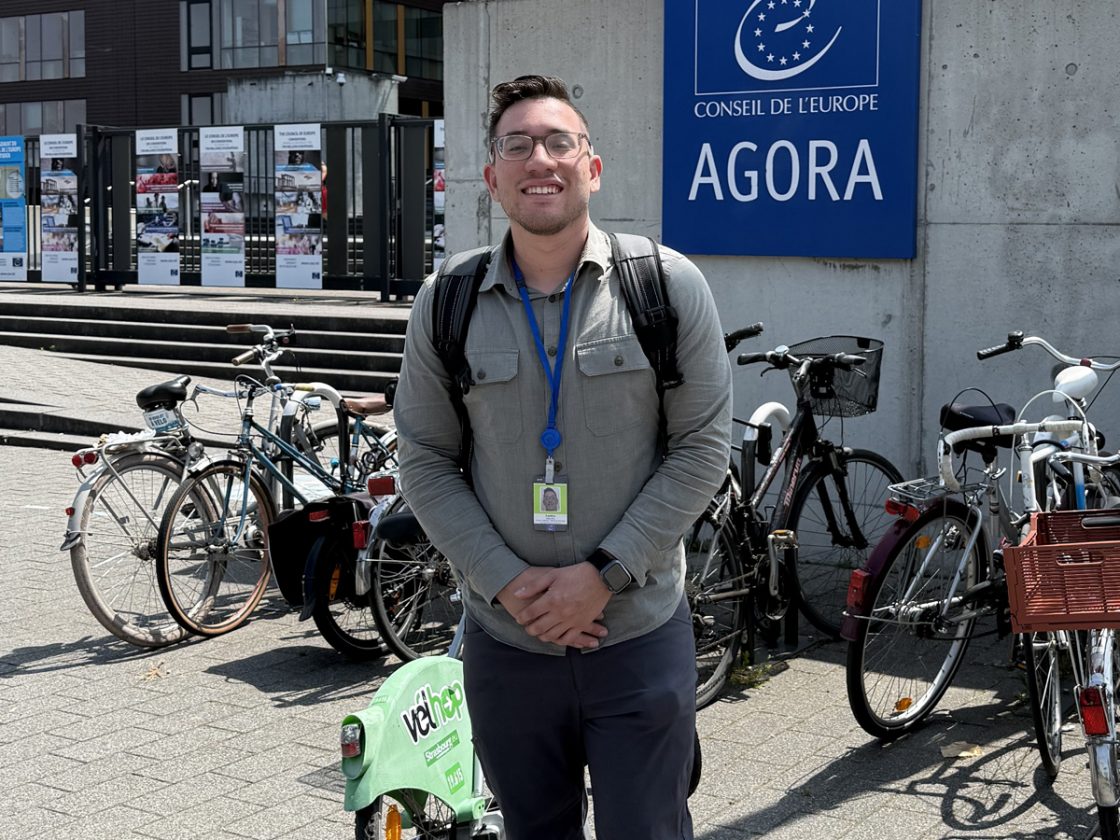
Alejandro Parra poses outside the Council of Europe’s Biomedical Division at the start of his internship.
Public Health Alumnus Says Syracuse Provided ‘A Road Map to Continue to Learn’
As he participated in a seminar for the International Drug Policy Academy in Strasbourg, France, one afternoon last May, Alejandro Parra ’24, G’25 had a moment of reflection.
The Maxwell School of Citizenship and Public Affairs alumnus, who earned a bachelor of science and a master’s degree in public health, joined global health experts from as far away as Malta and Mexico for a discussion about the ways culture shapes health care. They talked about the impact, for instance, of adjusting clinic hours based on local religious traditions, and collaborating with institutions such as churches to help distribute medicine and supplies.
Parra was not just an observer, but a participant—he gave a presentation on a proposal to cleanup needles discarded by drug users in a city park.
“I gained confidence presenting in front of experts in my field and the experience deepened my understanding of the multifaceted mechanisms that drive community action,” says Parra, who attended the seminar during his internship with the Council of Europe’s Biomedical Division in the spring of 2025. “It was a really unique opportunity and one of many insightful experiences I had.”
Witnessing History in Europe
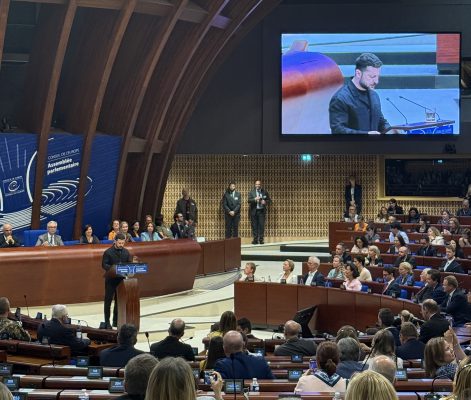
Another: In June, Parra sat in on a landmark event at which Ukrainian President Volodymyr Zelenskyy signed an accord with the Council of Europe to establish a special tribunal to try top officials responsible for Russia’s invasion of Ukraine. During his remarks at the event, Zelenskyy called for unity across Europe and the U.S. and urged leaders to uphold global democracy and the rule of law.
During his internship, from May through late June, Parra worked on public engagement and policy communication, creating fact sheets simplifying complex issues such as the role of artificial intelligence in health care, human rights in mental health care and the Oviedo Convention—a 1997 treaty on human rights in biomedicine.
He also participated in policy workshops and meetings with experts from across Europe on issues including psychiatric care and substance use disorders, gaining firsthand experience in building policy based on complex local contexts.
“A key skill I developed was writing for a non-scientific audience, condensing dense expert reviews into digestible facts,” he says. “This clarity proved essential in making policy resources accessible and engaging to the public.”
Building Policy and Communication Skills
The internship was one of several study abroad experiences Parra embraced during his five years at Syracuse. It proved especially transformative, showing him that global health is more than a coordinated effort; it is fundamentally rooted in the strength and unity of community.
“You can’t really deliver health care services to somebody without knowing their background and how to tailor it to them,” says Parra, who now resides in Queens, New York, and works as a mental health specialist for Lodestar Children’s Services, serves as a second lieutenant in the Army Reserves and is a member of the New York Army National Guard Military Funeral Honor Guard.
“The MPH [master of public health] program develops a multitude of cross-disciplinary skills and values that have shaped my perspective as a public health professional and provides me with a road map to continue to learn and grow my knowledge in the field.”
One of Parra’s favorite courses was Substance Use and Mental Health. Professor Ignatius N. Ijere often asked students to lead weekly sessions based on their own evidence and case studies. The resulting discussions, according to Parra, were “thought-provoking” and shaped his view of mental health “across different cultures, traditions and global contexts.”
As an undergraduate, Parra was honored with the Public Health Leadership Scholar Award. He served as a Falk College career ambassador, a resident advisor, an honors peer mentor and a global ambassador. He was a member of Syracuse’s Army ROTC and served as a cadet in the New York Army National Guard.
He was supported by an internship award through the University’s Office of Veteran and Military Affairs, and by the Patricia and Melvin Stith Graduate Student Fund established to support military-connected graduate students enrolled full time at Syracuse and participating in the University’s Our Time Has Come Scholarship Program.
Through his studies, internship and extensive global network, Parra learned that collaboration, trust and openness are the cornerstones of effective public health policy and human rights.
“My internship with the Council of Europe made it clear that developing human rights-centered policies requires a deep commitment to iterative feedback and adaptation,” he says. “The best policy work results from respectful debate, careful consideration of diverse viewpoints, and the humility to adjust ideas in response to real-world needs.”
Story by Catherine Scott
